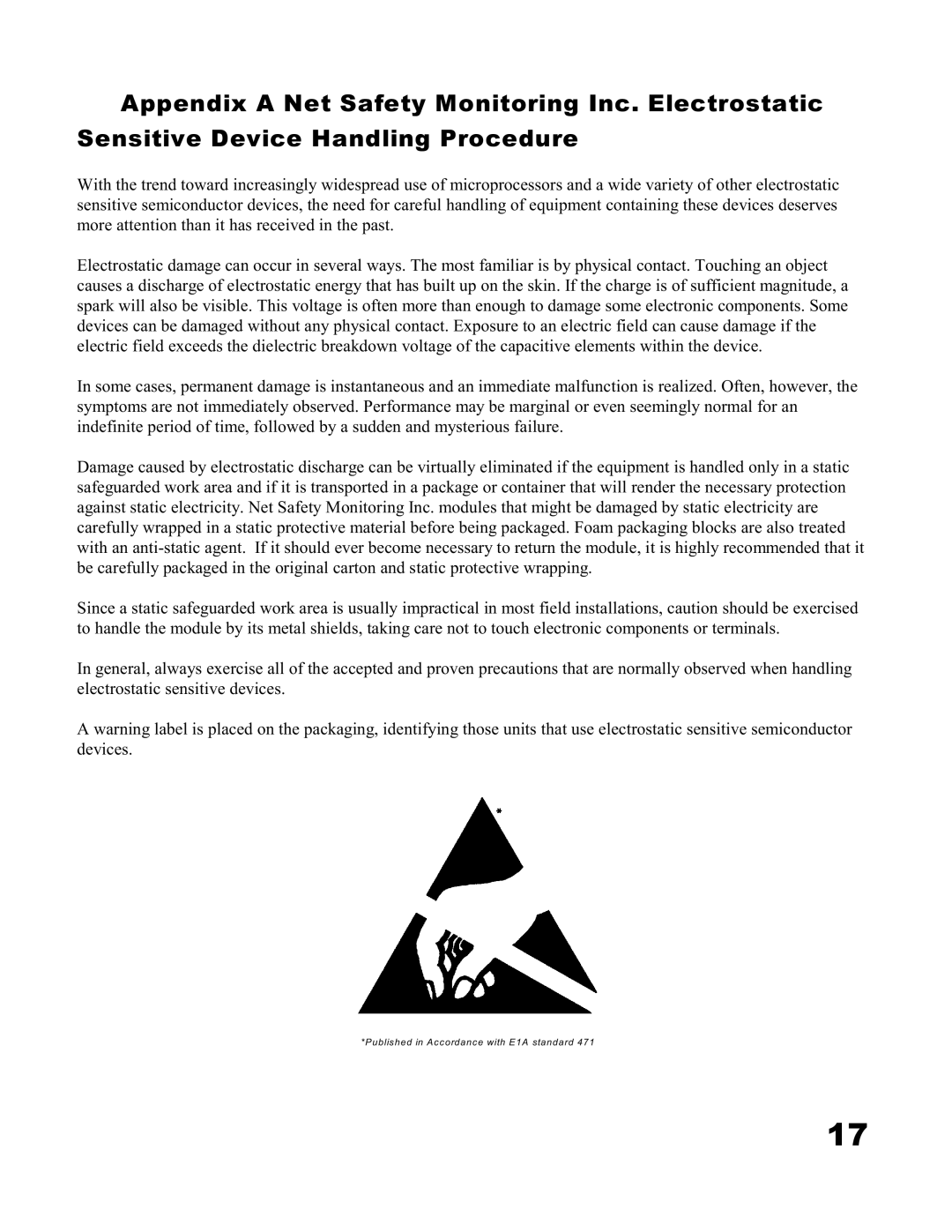
Appendix A Net Safety Monitoring Inc. Electrostatic
Sensitive Device Handling Procedure
With the trend toward increasingly widespread use of microprocessors and a wide variety of other electrostatic sensitive semiconductor devices, the need for careful handling of equipment containing these devices deserves more attention than it has received in the past.
Electrostatic damage can occur in several ways. The most familiar is by physical contact. Touching an object causes a discharge of electrostatic energy that has built up on the skin. If the charge is of sufficient magnitude, a spark will also be visible. This voltage is often more than enough to damage some electronic components. Some devices can be damaged without any physical contact. Exposure to an electric field can cause damage if the electric field exceeds the dielectric breakdown voltage of the capacitive elements within the device.
In some cases, permanent damage is instantaneous and an immediate malfunction is realized. Often, however, the symptoms are not immediately observed. Performance may be marginal or even seemingly normal for an indefinite period of time, followed by a sudden and mysterious failure.
Damage caused by electrostatic discharge can be virtually eliminated if the equipment is handled only in a static safeguarded work area and if it is transported in a package or container that will render the necessary protection against static electricity. Net Safety Monitoring Inc. modules that might be damaged by static electricity are carefully wrapped in a static protective material before being packaged. Foam packaging blocks are also treated with an
Since a static safeguarded work area is usually impractical in most field installations, caution should be exercised to handle the module by its metal shields, taking care not to touch electronic components or terminals.
In general, always exercise all of the accepted and proven precautions that are normally observed when handling electrostatic sensitive devices.
A warning label is placed on the packaging, identifying those units that use electrostatic sensitive semiconductor devices.
*P u b lis h ed in Accordance with E1A standard 471
17
